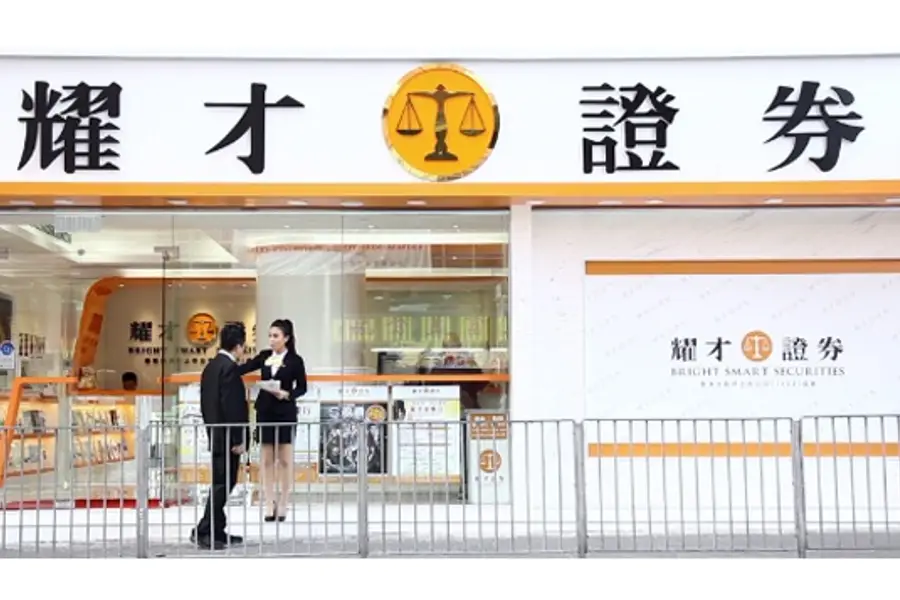Mainland regulators trip up Ant Group – again

Hong Kong’s Bright Smart Securities says its plan to be acquired by Ant is progressing on schedule, but a media report suggests the deal may face greater regulatory scrutiny
Key Takeaways:
- Bright Smart Securities said its plan to sell a majority of itself to Ant Group is on track, responding to a news report saying the deal faces higher regulatory scrutiny
- Chinese regulators have increased their oversight of Ant, including forcing the company to conduct a major overhaul after scuttling its mega IPO in 2020
By Warren Yang
Getting acquired by a top company can bring big benefits to China’s smaller firms, who can instantly access their parents’ extensive resources and connections. But it can also be a risky business due to the power such big acquirers wield, which sometimes results in testy relations with government regulators who must approve such purchases.
That’s the lesson now being learned by Bright Smart Securities & Commodities Group Ltd. (1428.HK), a Hong Kong-based stock brokerage, as clouds appear be gathering over its plan to be acquired by Ant Group, whose crown jewel is the Alipay electronic payments service.
The deal was first announced in April, when Ant agreed to buy 50.55% of the brokerage from its chairman for HK$2.81 billion ($359 million million). The deal didn’t strike anyone as controversial at that time, and appeared to be moving ahead. Then, last Thursday, the Wall Street Journal reported the sale could be delayed as more Mainland regulators considered reviewing it. Bright Smart shares tanked the following day, losing more than a quarter of their value at one point.
The brokerage scrambled to issue a statement during the day, saying the deal is progressing as planned. The company’s stock bounced back, although it was still down about 8% at the close of trading that day. It continued to slide on Monday, indicating investors remained somewhat skeptical about the deal’s prospects.
The Journal didn’t specify exactly why regulatory scrutiny over the deal may increase. But Ant certainly isn’t new to run-ins with its regulatory overlords. In late 2020, those gatekeepers abruptly shot down the company’s plan to raise more than $30 billion in a Hong Kong and Shanghai IPO, killing what could have been the world’s largest new listing at the 11th hour.
The sudden turn of events left investors trying to figure out what happened, as reports suggested that trouble had been brewing between Ant and Chinese regulators in the run-up to the listing. Days before Ant’s shares were set to start trading, regulators interviewed a couple of the company’s executives and Jack Ma, founder of e-commerce giant Alibaba, which holds a major stake in Ant. The Shanghai Stock Exchange cited the meeting in its decision to suspend the IPO, further explaining that Ant had flagged “significant issues” regarding changes in the regulatory environment for fintech companies. Around that time, China’s central bank had also issued new draft rules for online micro-lending, a major business area for Ant.
All this unfolded after Ma made some comments seemingly critical of Chinese financial regulators at a summit in Shanghai after Ant’s shares were priced. He said China’s financial and regulatory systems hurt innovation, emphasizing the need to use technology to extend financial services to small businesses and individuals.
“Today’s financial system is the legacy of the Industrial Age,” he said. “We must set up a new one for the next generation and young people. We must reform the current system.” Expressing such thoughts in such a high-profile manner raised many eyebrows, in a country where most business leaders go out of their way not to openly criticize their regulators
Forced overhaul
Not long after the IPO debacle, Ant was forced to undergo a major overhaul, subjecting it to the kind of reform that Ma had called for in China’s financial system. It is taking steps to restructure as a financial holding company subject to stricter regulatory oversight and requirements, and its application for a financial holding company license is still pending.
Many believe that regulators have adopted a hardline stance towards Ant to keep its expansion in check and curb any risks it could pose to China’s financial system, similar to an earlier regulatory crackdown on peer-to-peer lenders.
Ant is looking to use the Bright Smart acquisition for a foray into the stock brokerage industry. As its restructuring is still in progress, pending receipt of the financial holding company license, any attempt to expand its business scope probably won’t go down well with Chinese regulators.
Ant already has sprawling operations that include digital payment services through Alipay, as well as loan facilitation, wealth management and insurance. As part of its restructuring, the company spun off some of its businesses. Units now operating independently include Ant International, an overseas arm registered in Singapore, which is reportedly considering a separate listing in Hong Kong.
In short, there’s a lot going on with Ant at the moment, and it probably shouldn’t surprise anyone if its Bright Smart deal drags on due to heightened regulatory scrutiny.
Even after the selloff last week, Bright Smart shares have surged more than 400% this year. Some of those gains come on the back of a rally that has driven Hong Kong’s benchmark Hang Seng Index up 28% this year.
Bright Smart’s revenue grew 7% year-on-year to HK$972 million ($125 million) in its most recent fiscal year to March, with its brokerage commission income up 14.5% to HK$511 million. Its profit rose 11% to HK$618 million, which translates into a fat net margin of 64%.
Bright Smart shares trade at a price-to-earnings (P/E) ratio of 33, higher than 29 for Futu Holdings (FUTU.US), a larger Hong Kong-focused brokerage, and 24 for UP Fintech (TIGR.US), which is looking to expand in the city to build on its presence in Singapore. Bright Smart’s current valuation makes it look like Ant got a bargain with its purchase price. And with Ant’s own rich resources, the brokerage has potential to take market share from rivals like Futu and other Hong Kong brokerages, and even move into other global markets.
But none of this will matter unless Ant can get Chinese authorities to sign off on the deal. Whether or when it can do that are big question marks for now, casting shadows not only on Ant’s overseas aspirations, but also on its ability to pull off major M&A in the future.
To subscribe to Bamboo Works free weekly newsletter, click here





